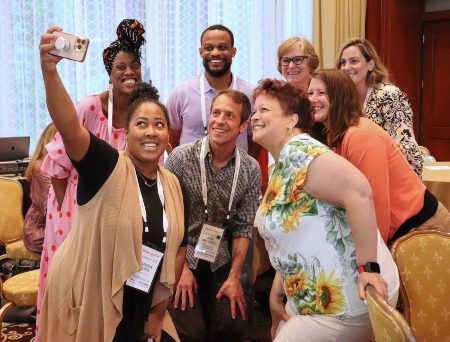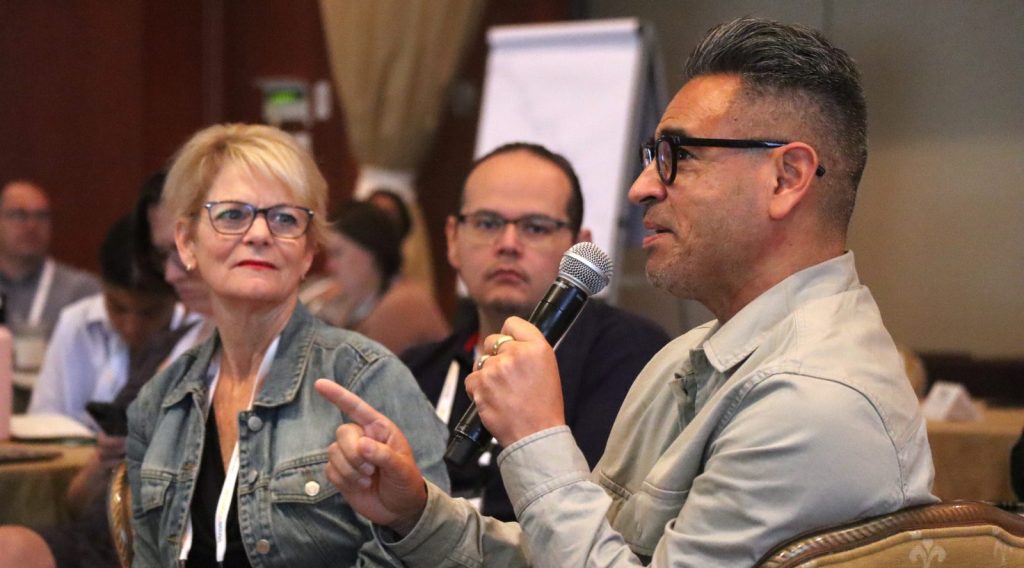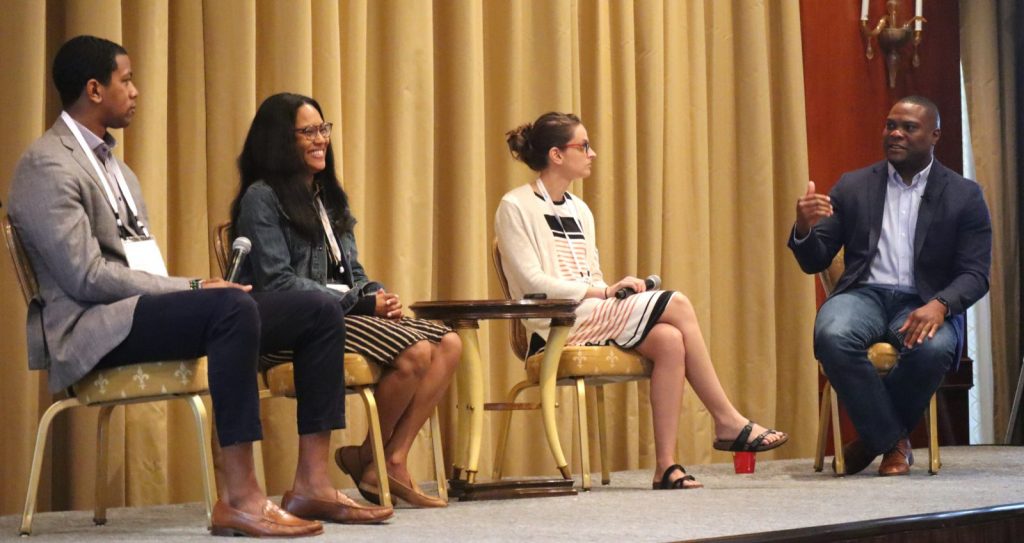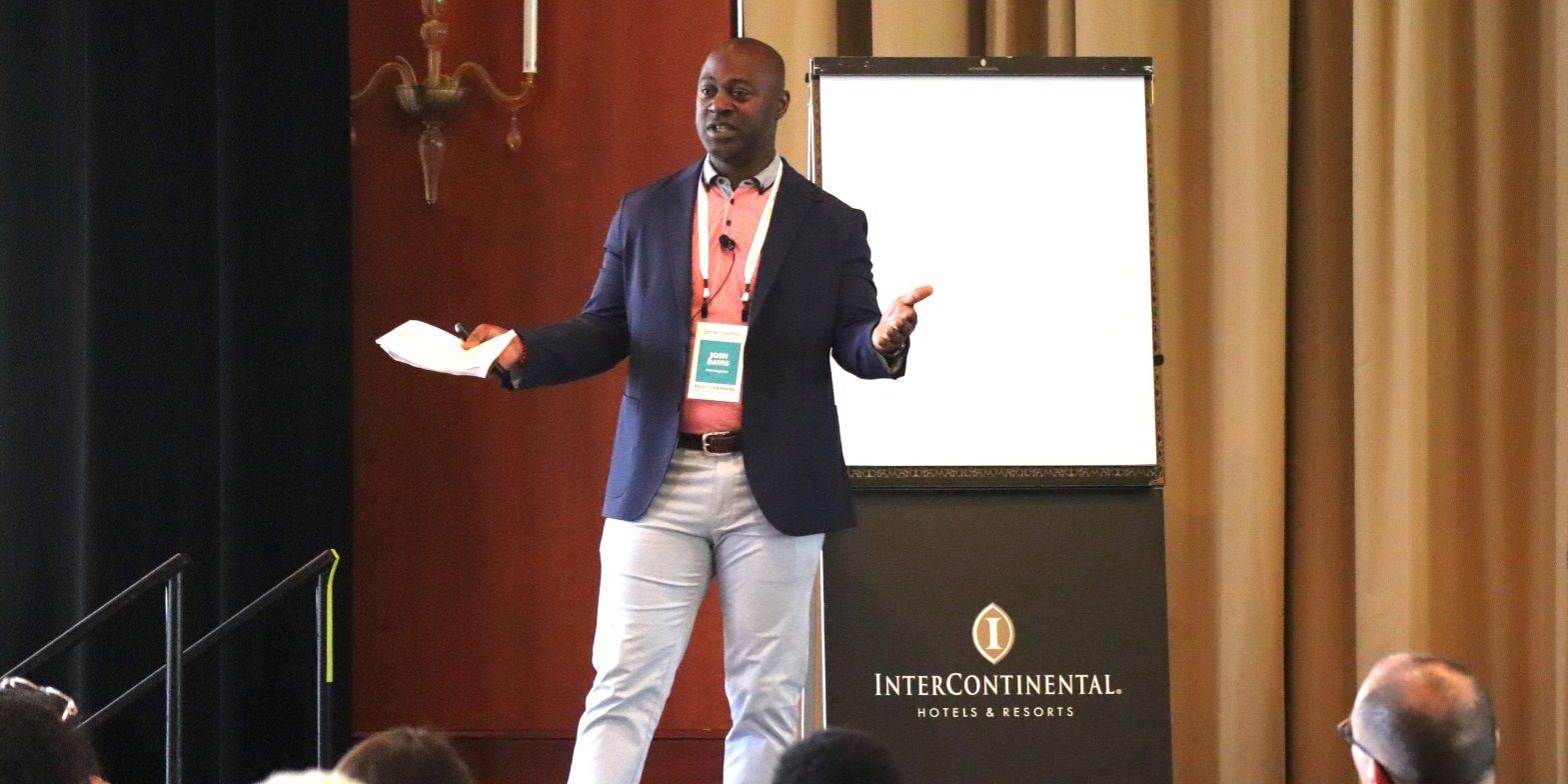We are at a pivotal moment in our country and in our work. Thanks to funding available through the American Rescue Plan and more, we have access to resources and the will to not just meet the present moment, but to make significant progress toward addressing racial equity and economic mobility for children and families. This is an unprecedented opportunity to use our voice, our experience and our data to drive impact — and it’s an opportunity that the StriveTogether Cradle to Career Network is prepared to take full advantage of.

At the 2022 policy convening, more than 100 Cradle to Career Network members gathered to connect, learn from each other and build strategies to advance equitable policies.
Last week, the Network convened in New Orleans, where over three days, more than 100 network members and partners connected and built strategies at the federal, state and local levels. Across the country, these community leaders are working to advance policies that put youth and families first and support them to thrive.
The Cradle to Career Network is uniquely positioned to take up this challenge and lead on policy implementation, with our decade of experience building civic infrastructure in nearly 70 communities across 29 states. Civic infrastructure is the connective tissue that allows a community to work together effectively. Through this infrastructure, network members are convening decision-makers and facilitating data- and results-driven conversations about how to use funding. They’re bringing together all the sectors that impact community members, from housing and health care to education and philanthropy.
Policy work is driven by these relationships, and our most important relationship is with communities. Policies can and should be shaped by the voices of those most impacted by decisions — particularly people marginalized by our current systems. The civic infrastructure that the Cradle to Career Network has built is changing traditional ways of working to be more inclusive and responsive to authentic community expertise and authority.

Cradle to Career Network members shared their expertise, insights and shared challenges across three days in New Orleans. Here, Richard Raya, chief strategy officer at Mission Economic Development Agency, shares insights from the Mission Promise Neighborhood in California.
To guide this work, StriveTogether has developed a federal policy agenda in alignment with national partners that have deep expertise across the cradle-to-career continuum. This agenda is informed by the Cradle to Career Network, tailored to build on the strengths of their communities.
In our work to ensure that race, ethnicity, zip code or circumstance do not limit a child’s potential, we have identified these national policy priorities:
- Create the conditions needed to align cradle-to-career systems across sectors;
- Advocate for direct investment and support of local cradle-to-career partnerships; and
- Align resources to the programs and interventions are proven to get better, more equitable outcomes for children and families.
Within these pillars, we’ll lead and support strategic initiatives for change. Together, we’re working to create permanent federal structures to center the voices and well-being of youth and their families. Our work will strengthen anti-poverty strategies through executive and legislative measures to increase funding and modify existing approaches to policies, programs and civic infrastructure development.

Network members heard from national partners at the policy convening, including Children’s Funding Project, Cornerstone Government Affairs, The Education Trust, Results for America and Save the Children.
This work is challenging, but we’re seeing success across the country that proves that it’s possible. In New Orleans, we heard from local community leaders sharing the progress of the New Orleans Youth Master Plan. This comprehensive roadmap is focused on creating and sustaining a city that works for all young people. The 10-year, multisector plan was developed by youth, parents, educators, community leaders and other key stakeholders.
Here are a few more bright spots we’re celebrating:
- For the first time, Promise Neighborhoods are included in the California state budget, in a $12 million investment in cradle-to-career work. The California Cradle to Career Coalition continues to advocate for the It Takes a Village Act, which would invest $92.4 million into this work.
- Partners for Rural Impact in Berea, Kentucky, received $16 million in ESSER (Elementary and Secondary School Emergency Relief) funding. Beyond the financial gain, this success signifies strong relationships with the state, which could pave the way for more support for children and families.
- Eight Cradle to Career Network communities are entering year two of a three-year initiative called SPARCY: Shifting Public Accountability and Resources to Center Youth. A key component of this effort is Youth Impact Assessments. These assessments explore how policy, programmatic and budgetary decisions impact young people to get to more effective strategies.
Policy changes and innovations like these are essential in our work to transform systems and put every child on the path to economic mobility. Our team is grateful to the national partners that made our time in New Orleans possible, including Children’s Funding Project, Cornerstone Government Affairs, The Education Trust, Results for America and Save the Children. Their collaboration, along with the relentless work of local communities, will ensure that we see the effective policies needed to dismantle barriers and help communities thrive.






